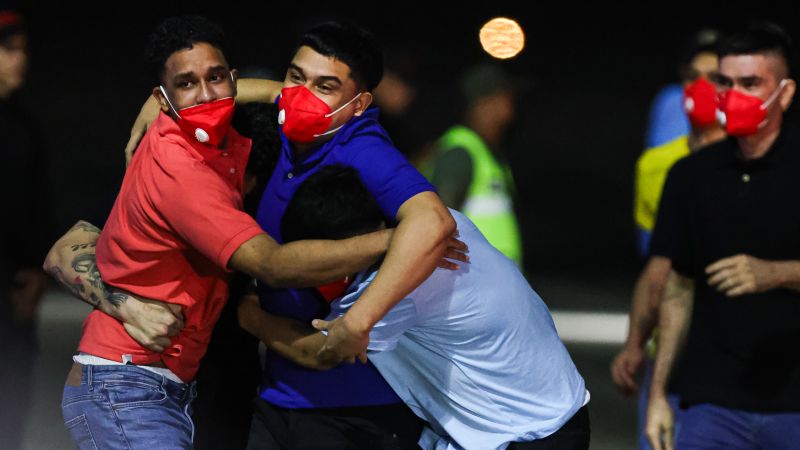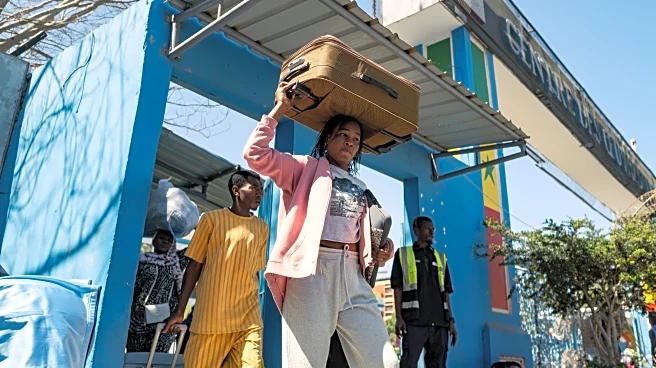Amid escalating regional tensions, Venezuela's Attorney General Tarek Saab has taken a bold step by launching an investigation into El Salvador’s President Nayib Bukele and other officials. This inquiry
Did You Know
Honeybees can recognize human faces and remember them for their entire lives.
?
AD
is rooted in alarming allegations of abuse directed at Venezuelan migrants detained in El Salvador. Recently deported under a deal with the United States, these detainees have reported harrowing experiences, including mistreatment, raising significant concerns about human rights violations in the region.
The plight of these migrants highlights the grim realities many face as they navigate their precarious circumstances. Reports have emerged detailing a range of abuses in custody, painting a disturbing picture of the treatment that Venezuelans endure upon their return to Central America. This new investigation serves not only as a response to individual cases of mistreatment but also as a broader commentary on the challenges of protecting migrant rights amid increasing geopolitical pressures.
The unfolding investigation has captured international attention, emphasizing the need for accountability and the urgent protection of human rights for vulnerable populations. As Venezuela seeks to shed light on the treatment of its citizens abroad, the situation underscores the complex dynamics between migration policy, national sovereignty, and humanitarian responsibilities. With diplomatic relations further strained between Venezuela and El Salvador, the world watches closely, hoping for resolution and justice for those caught in the crossfire of political and social turmoil.
Q&A (Auto-generated by AI)
What led to the investigation of Bukele?
The investigation into El Salvador's President Nayib Bukele was prompted by allegations of abuse against Venezuelan detainees in a Salvadoran prison. Venezuela's Attorney General Tarek Saab announced that the investigation would focus on Bukele and other officials due to reports of mistreatment of Venezuelan migrants who were deported from the U.S. and subsequently detained in El Salvador.
How does this case relate to US deportation policies?
This case is closely tied to U.S. deportation policies as many Venezuelans were deported from the U.S. to El Salvador. The situation highlights the consequences of U.S. immigration enforcement, particularly how deported individuals may face mistreatment in their home or transit countries. The investigation raises questions about the responsibilities of the U.S. in ensuring humane treatment of deportees.
What are the implications for Venezuelan migrants?
The implications for Venezuelan migrants are significant, as the investigation may shed light on their treatment in El Salvador. If the allegations are substantiated, it could lead to increased scrutiny of the conditions faced by migrants and may influence policies regarding their treatment, deportation procedures, and protections under international law.
What is the history of Venezuela-El Salvador relations?
Venezuela and El Salvador have had a complex relationship characterized by political and economic ties, particularly during the leftist governments in Venezuela. However, relations have soured in recent years, especially under Bukele's administration, which has distanced itself from Venezuela. The current investigation is a reflection of these deteriorating diplomatic ties.
How does international law address detainee treatment?
International law, particularly through instruments like the Convention Against Torture and Other Cruel, Inhuman or Degrading Treatment or Punishment, mandates that detainees must be treated humanely. Allegations of abuse can lead to international scrutiny and potential legal actions against officials responsible for violations, emphasizing the need for accountability.














